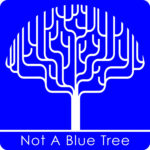 Addiction is such a strange thing. I doubt that anyone sets out to become addicted. And yet, so many become addicted to something. Indeed, at times it feels like we can become addicted to anything. Because addiction is that inability to stop, that inability to retake control. Addiction is that overwhelming desire to continue with the behaviour no matter how destructive it is. So, when did you realise that you’re really good at being addicted?
Addiction is such a strange thing. I doubt that anyone sets out to become addicted. And yet, so many become addicted to something. Indeed, at times it feels like we can become addicted to anything. Because addiction is that inability to stop, that inability to retake control. Addiction is that overwhelming desire to continue with the behaviour no matter how destructive it is. So, when did you realise that you’re really good at being addicted?
The NHS defines addiction as “not having control over doing, taking or using something to the point where it could be harmful to you.”. This includes not only the obvious like drugs, alcohol, and gambling, but also extends to things like work, exercise, and the Internet.
 What strikes me about addiction is that it all too often starts as something innocuous. Substances provide a buzz. Gaming and gambling offer excitement and challenge. Work and exercise show that you’re stepping up and moving forward. And then suddenly, the buzz vanishes and all that is left is a craving for the next fix. The excitement and challenge have become a compulsive obsession. Instead of stepping up and moving forward, you’re sinking into an abyss with no obvious way out. How, you wonder, did it all go so wrong?
What strikes me about addiction is that it all too often starts as something innocuous. Substances provide a buzz. Gaming and gambling offer excitement and challenge. Work and exercise show that you’re stepping up and moving forward. And then suddenly, the buzz vanishes and all that is left is a craving for the next fix. The excitement and challenge have become a compulsive obsession. Instead of stepping up and moving forward, you’re sinking into an abyss with no obvious way out. How, you wonder, did it all go so wrong?
 You still have choices, though. SMART Recovery® takes the view that addiction is choice, so if we choose addiction, we can equally choose the opposite. We can, of course, choose to continue with the addiction, pursuing a course of self-destruction. Except not all addiction is self-destructive. And we can spend endless hours attempting to work out where it all went wrong. We may find an answer and we may not.
You still have choices, though. SMART Recovery® takes the view that addiction is choice, so if we choose addiction, we can equally choose the opposite. We can, of course, choose to continue with the addiction, pursuing a course of self-destruction. Except not all addiction is self-destructive. And we can spend endless hours attempting to work out where it all went wrong. We may find an answer and we may not.
 Everyone is different, and there are multiple routes to success. We mostly accept that the route to success is not linear, with lapses and relapses likely to occur. Cutting back, cutting down and cutting out may take longer than expected. Peer support and professional input may help, and often does. I have, though, worked with people who are “treatmented-out”, having been through the systems and processes many times over.
Everyone is different, and there are multiple routes to success. We mostly accept that the route to success is not linear, with lapses and relapses likely to occur. Cutting back, cutting down and cutting out may take longer than expected. Peer support and professional input may help, and often does. I have, though, worked with people who are “treatmented-out”, having been through the systems and processes many times over.
 As a coach, my view is that you are the expert in you. You understand how your addition presents and you recognise the triggers. You know what you do to sustain your addiction. Additionally, you have well-rehearsed routines to justify, explain and hide your behaviour. Further to this, you are the expert in berating yourself and highlighting your failures and disasters.
As a coach, my view is that you are the expert in you. You understand how your addition presents and you recognise the triggers. You know what you do to sustain your addiction. Additionally, you have well-rehearsed routines to justify, explain and hide your behaviour. Further to this, you are the expert in berating yourself and highlighting your failures and disasters.
You are also the expert on what needs to happen to break the cycle. There are people and places that you know can help, and who and what can hinder. Importantly, you know that you can do it, and you realise that now is the time to get started.
Coaching can help. Coaching can help you formulate exactly where you want to be, working out the first steps and milestones to success. Above all else, coaching provides the space to rehearse and perfect the actions that you know that you can take to success.
So, if you know what to do, do it. If you’re not sure, book an initial consultation here, and then work out what you want to do next. You know that it makes sense, don’t you?

